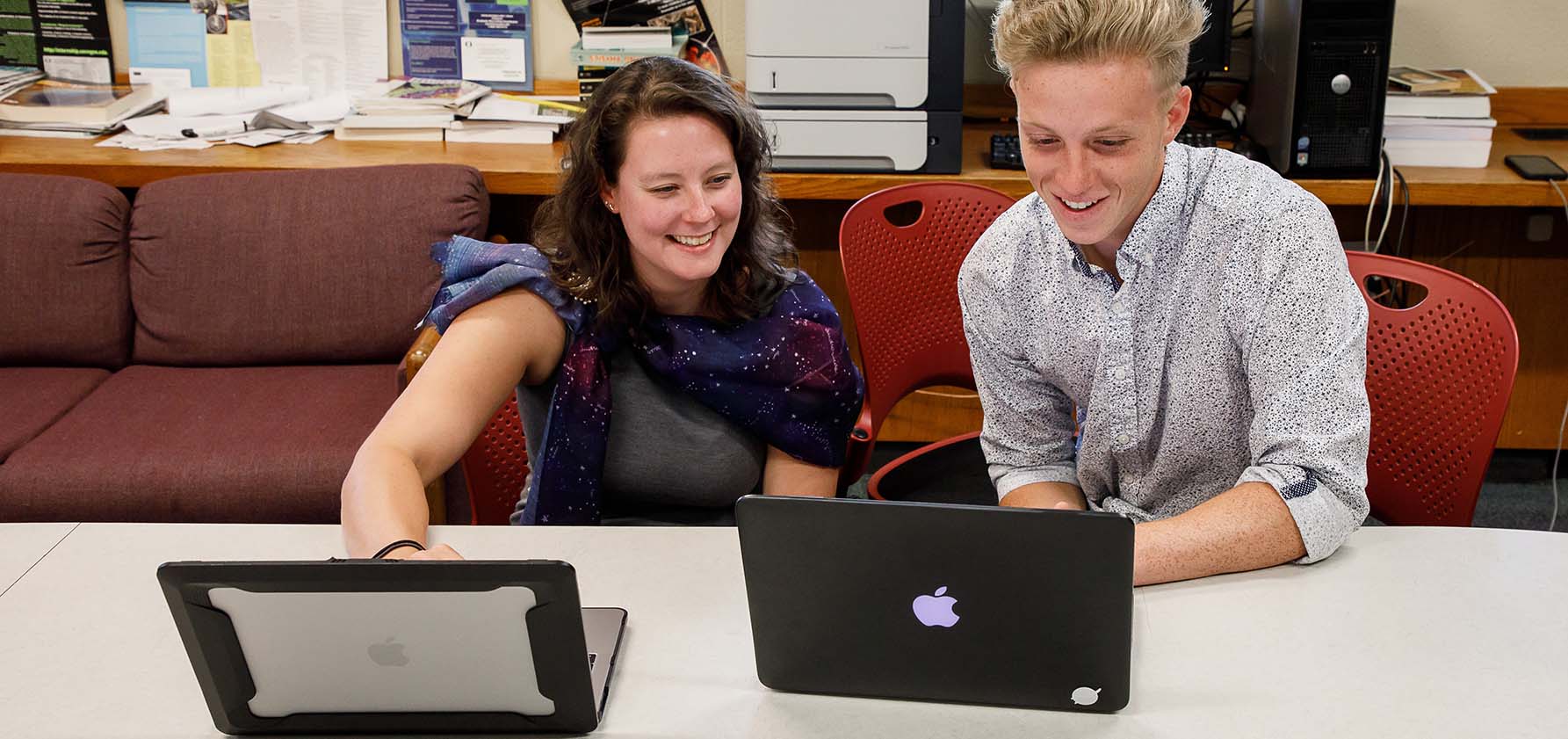
I love all physics—great and small. It amazes me that we can explain so many things that we cannot see because we understand the rules and laws that govern them. My main area of focus is quantum mechanics. Being able to understand how atoms and molecules interact and to use mathematics and computer codes to explain experimental results is a fascinating, captivating puzzle. I have also recently started to work in astrophysics. As with quantum mechanics, we can learn so much about systems thousands of light years away by programming equations into computer models and reproducing the data.
What is your favorite class to teach and why?
I love Introductory Physics because I get to meet all sorts of students from all different departments on campus and make connections to the fields they love, and I love Quantum Mechanics because it is my favorite material in physics, but I think my favorite class to teach is Modern Physics. The material is closely related to quantum mechanics—every week we talk about a different way of thinking about the world that challenges the interpretation students have been developing their entire lives but that explains some discovery that classical physics simply could not justify. That said, the students are the real reason I love this class—it is the first upper level course for physics majors, and the students really start to understand what it means to study physics and become scientists asking challenging questions and pushing back against concepts that have been ingrained in them since childhood. The transformation of the students during this course is profound, inspiring, encouraging, and humbling all at the same time.
What is your favorite spot on campus?
The first floor of Collier. Hardly anyone visits, but it is full of fascinating equipment and experiments and treasures. Many people come to my office and say, “I think this is the first time I have been to this floor,” but to me it feels like home. If anybody makes the trip, I am happy to show them glasses that turn light into rainbows—proof that electrons are particles and waves—and how magnets can be used to dampen the effects of gravity.
What is your favorite college tradition?
I don’t think it is necessarily a college tradition, but the Society of Physics Students holds pizza lectures two or three times a semester. I LOVE them! Over the years, I have listened to presentations from students doing research on particle collisions and granular materials, an alum who works at NASA mapping oceans with satellites, and physics majors who studied abroad in Australia and Scotland, to name a few. It inspires me to see all the ways that physics is applied and all the opportunities available to students studying it. Plus, there’s PIZZA!
What is your favorite thing to do when you are not teaching or engaged in research?
Cuddle my two cats and dog. It is such a great stress reliever!
What is your favorite book and why?
To Kill a Mockingbird. Every time I read it, I am a different person, and I learn something new. As a child, you read the book through Scout’s eyes and see the simple lessons of wrong and right, of accepting people for who they are. As an adult, you learn the consequences of doing nothing, the subtle ways society affects different aspects of our lives.
What is the best advice you have ever received?
“Perfect is the enemy of good.” Sometimes we work so hard and so long to make things perfect, that we get overwhelmed by all the minor flaws and lose sight of the goal and intent. It is important to remind yourself at times of the purpose and to ask ourselves will this work in its current state to achieve that purpose?
What makes you happy?
Questions. If you ask a question, you learn something. You may be simply curious about something and you gain a new piece of knowledge. In the classroom, by asking questions, you may discover that your students understand the lesson you are teaching; other times you learn they are not grasping the material, but if you don’t ask the questions, you can’t do anything to fix it. Sometimes questions lead you to someone new who might have the answer. Other times you learn that no one knows the answer, and that is okay—in fact, it’s exciting, because now you get to work through how to find the answer.
Ruth Malenda is from Fleetwood, Pennsylvania. She earned her PhD at Lehigh University. She is a member of the American Association of Physics Teachers, the American Physical Society, and Sigma Pi Sigma honor society.